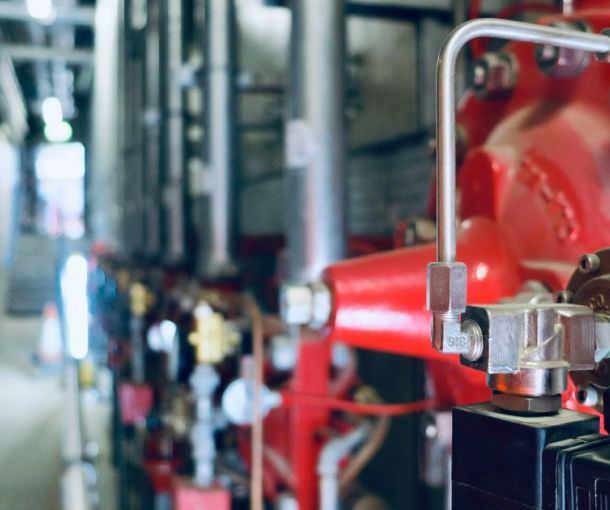
What Does a Commercial Property Manager Do?
In commercial real estate, property managers play a pivotal role in keeping buildings running smoothly, tenants satisfied, and investments protected. But what exactly does a commercial property manager do?
Managing commercial properties is a demanding and complex role. From maintaining building operations to managing tenant relations and compliance, a commercial property manager plays a critical part in ensuring the long-term value and performance of an asset. Yet, many building owners, developers and investors still underestimate the scope and responsibility involved in commercial property management.
In Australia, the commercial real estate market is seeing increasing pressure to deliver greater operational efficiency and tenant satisfaction, all while reducing energy and maintenance costs. Savills highlights how the modern property manager is now pivotal in delivering ESG outcomes, monitoring and analysing energy usage, managing sustainability initiatives, and driving both tenant engagement and asset value through smarter building strategies.
Let’s explore the full scope of the role of a commercial property manager and what they do, how they operate, and why their job is more important than ever.
Key Responsibilities of a Commercial Property Manager
The duties of a commercial property manager span several disciplines. Below are some of the core areas they typically oversee:
1. Financial Management
- Budgeting for operational expenses and capital improvements
- Managing rent collection and financial reporting
- Planning long-term maintenance and lifecycle asset costs
2. Tenant Management Services
- Acting as the primary point of contact for tenants
- Handling lease agreements, renewals, and terminations
- Addressing tenant concerns, complaints, or requests
3. Building Maintenance Responsibilities
- Scheduling and supervising repairs and preventive maintenance
- Coordinating with contractors and maintenance staff
- Ensuring compliance with local safety regulations and standards
4. Commercial Lease Management
- Drafting and reviewing lease terms
- Monitoring lease expiry and critical dates
- Ensuring lease obligations are fulfilled by tenants and landlords
5. Risk and Compliance
- Maintaining insurance coverage and legal compliance
- Conducting regular inspections and addressing identified risks
- Managing emergency protocols and response plans
Together, these responsibilities ensure the property operates efficiently, remains compliant, and delivers strong value to both owners and tenants.
Check here Why Regular Building Inspections Are Critical for Property Managers
Day-to-Day Tasks of a Commercial Property Manager
On a typical day, a commercial property manager might start with reviewing maintenance reports or tenant feedback, then meet with service providers or contractors on-site. Their afternoon may involve lease negotiations or preparing monthly financial reports. Each day is different, but attention to detail and proactive communication are key constants.
Tasks can often include:
- Inspecting properties
- Approving invoices
- Meeting with tenants or building owners
- Reviewing contractor proposals
- Coordinating upgrade or refurbishment works
These daily tasks require a balance of organisation, communication, and problem-solving skills. Whether it’s addressing a tenant concern or coordinating a last-minute repair, no two days are exactly alike. A proactive approach helps property managers stay ahead of issues and maintain smooth building operations.
Facility Management in Commercial Buildings
Facility management is a core function of commercial property management, ensuring that building systems (such as HVAC, elevators, lighting, and security) are operating smoothly and cost-effectively. An efficient manager will leverage digital tools to track asset performance, maintenance schedules, and contractor accountability.
Many Australian property managers are now turning to cloud-based platforms like MYBOS to streamline these responsibilities. These systems enable real-time reporting, automated reminders, and centralised recordkeeping, all of which help reduce administrative overhead and improve building performance.
Discover how to decide between external contractors and internal teams in Outsourcing vs In-House Property Maintenance: Which Is Better for Your Building? Article.
What Makes a Great Commercial Property Manager?
While responsibilities can vary based on property size and type, great property managers tend to share several key qualities:
- Strong communication and negotiation skills
- Attention to detail and excellent organisation
- Financial literacy and strategic planning ability
- A proactive approach to problem-solving
- Familiarity with relevant regulations and industry standards
Understanding the property manager job description also means understanding that success isn’t just about maintaining the status quo, it’s about identifying opportunities to increase building performance, cut costs, and enhance tenant experience.
As underscored by Cushman & Wakefield’s property management philosophy, top-tier managers take a holistic, value-driven approach. They don’t simply react, they proactively oversee operations, leasing, cost controls, and tenant relationships.
Technology’s Growing Role in Commercial Property Management
Modern commercial property management is becoming increasingly tech-driven. Managers are using digital platforms to automate workflows, access real-time performance data, and improve tenant communication. This shift isn’t just about convenience, it’s about staying competitive in a rapidly evolving property market.
According to McKinsey, virtual replicas of physical buildings connected to real-time IoT sensors provide a powerful tool for property managers. They enable simulation and optimization of operations, helping reduce energy use, enhance maintenance schedules, and inform strategic decisions.
From digital tenant portals to smart building automation, technology is reshaping how property managers work and the expectations tenants have for their spaces. Embracing this change is now essential.
Why the Role of a Commercial Property Manager Matters
In a competitive commercial property landscape, having a knowledgeable and proactive manager can mean the difference between a struggling asset and a high-performing one. Their role goes far beyond basic operations; it’s about strategic oversight, smart investment, and creating environments where businesses can thrive.
If you’re looking to optimise your building operations and deliver better results for your stakeholders, it’s time to re-evaluate your current systems and strategies.
Ready to streamline your commercial property management? Book a demo with MYBOS today to discover how our platform can simplify operations, reduce costs, and elevate tenant satisfaction.







